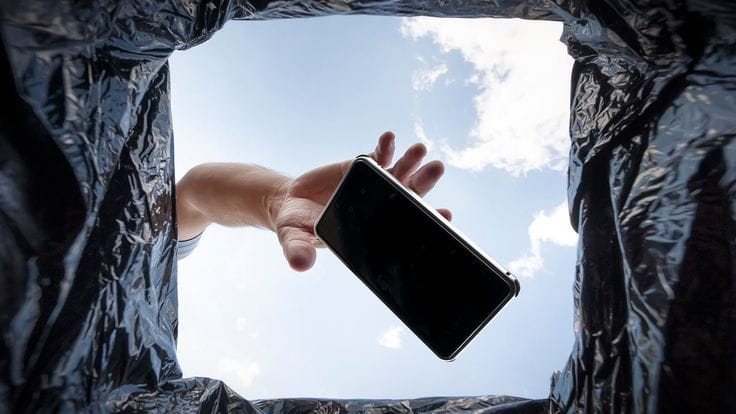
Is something smarter replacing your phone soon?
In 2025, something strange is happening. For over a decade, smartphones have ruled our pockets and lives — but now, the upgrades are starting to feel… boring. You’ve probably noticed it too. The latest models promise better cameras, brighter screens, or faster chips. But are those changes really exciting anymore? Are we reaching the end of smartphone innovation? Many experts and tech lovers are starting to ask: is this the last chapter for the smartphone as we know it?
Let’s explore this idea together — in simple language, and with powerful facts. Because what’s coming next might just change how we think, communicate, and live.
Innovation Is Slowing Down
When smartphones first appeared, every year brought something amazing: the first iPhone with touch screen, Android with widgets, voice assistants like Siri and Google Assistant, face unlock, fast charging — it felt like magic was happening. But now in 2025, most new phones look the same, do the same things, and offer upgrades you might not even notice.
Why is this happening? Because we’ve reached the limit of what a rectangle in your hand can do. Most people use their phones for calls, messaging, social media, videos, and photos. And today’s smartphones are already very good at those things. So adding slightly faster processors or cameras with 200 megapixels doesn’t feel life-changing anymore.
Even worse, some chipmakers say they are close to hitting the physical limits of current chip technology. Smaller, faster chips use more power and create more heat. Cooling them down in a thin phone body is hard without draining your battery in hours. We’re reaching the ceiling of smartphone power — and human users don’t need all of it.
Power Beyond Our Needs
Modern smartphone chips can handle over 15 trillion operations per second — that’s faster than most laptops. But here’s the catch: most people never use even 30% of that power. We browse the web, watch videos, or chat. So why do we need more power?
It’s like buying a race car just to drive to the grocery store.
This gap between chip capacity and real-life usage is getting wider. Phones are becoming overpowered for most humans. And developers are struggling to create apps that truly need all that speed. This mismatch is making people wonder — maybe it’s time for something completely new, something built for what humans really want.
Enter AI, Smart Glasses & Neural Interfaces
Here’s the exciting part: while smartphones slow down, new tech is rising.
- AI Assistants: Tools like ChatGPT, Google Gemini, and Apple’s rumored AI are becoming smarter and more useful than ever. In the future, you might not open an app to order food — you’ll just say it, and your AI will handle it. No need to even touch your screen.
- Smart Glasses: Meta, Apple, and even Samsung are working on glasses that can show messages, directions, or even video calls — right in front of your eyes. No more staring at a phone screen!
- Brain-Computer Interfaces: Yes, this is real. Companies like Neuralink are testing ways for humans to control devices using just their thoughts. It’s still early, but in 10 years, your next “phone” might be… your mind.
Why Tech Companies Still Push Phones
If innovation is slowing down, why are brands still selling new phones every year? Because it’s a safe business. Millions still buy them, even for small upgrades. But some brands are secretly preparing for what’s next — Apple is investing heavily in spatial computing, and Google is going all-in on AI.
These companies know something big is coming. They just don’t want to give up their cash cow (smartphones) until the next big thing is ready.
So, Is This the End?
Not yet — but we’re close.
Smartphones won’t disappear overnight. But in 3 to 5 years, they might stop being the center of your digital life. Instead, you’ll talk to AI, wear smart devices, and maybe even use your thoughts to control tech.
2025 might be the beginning of that shift. The age of the smartphone is ending — and something smarter is coming.
Fun Fact:
Your smartphone chip can do more math per second than the computers used to land Apollo 11 on the Moon in 1969 — by over a million times! Yet we mostly use it for scrolling Instagram.



